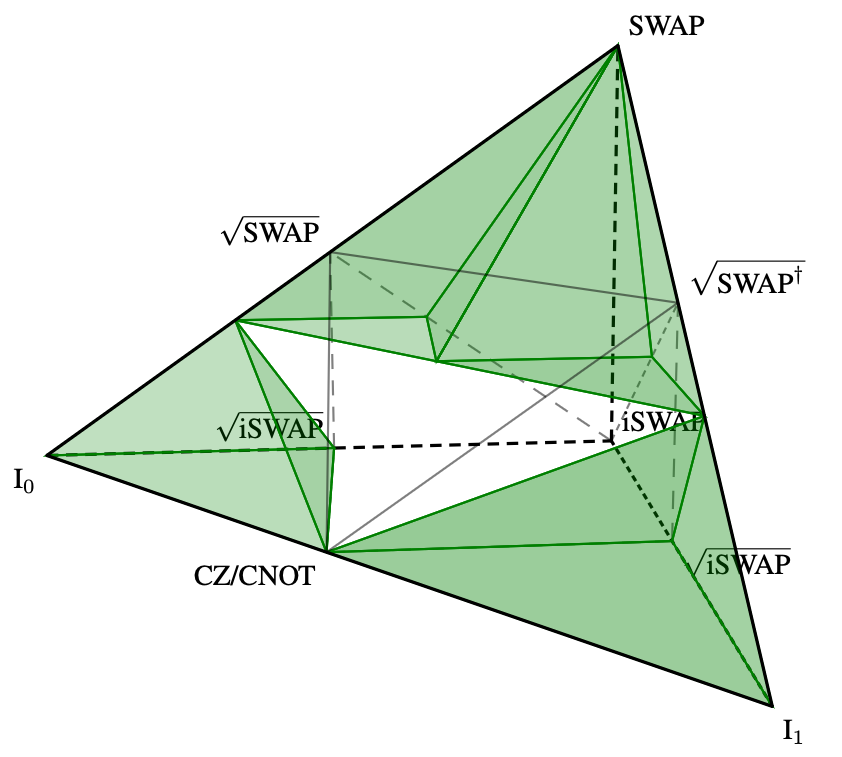Gates that are not able to synthesize SWAP in 3 layers, shown in a Weyl chamber.
Near-term quantum computers are primarily lim- ited by errors in quantum operations (or gates) between two quantum bits (or qubits). A physical machine typically provides a set of basis gates that include primitive 2-qubit (2Q) and 1-qubit (1Q) gates that can be implemented in a given technology. 2Q entangling gates, coupled with some 1Q gates, allow for universal quantum computation. In superconducting technologies, the current state of the art is to implement the same 2Q gate between every pair of qubits (typically an XX- or XY-type gate). This strict hardware uniformity requirement for 2Q gates in a large quantum computer has made scaling up a time and resource-intensive endeavor in the lab. We propose a radical idea – allow the 2Q basis gate(s) to differ between every pair of qubits, selecting the best entangling gates that can be calibrated between given pairs of qubits. This work aims to give quantum scientists the ability to run meaningful algorithms with qubit systems that are not perfectly uniform. Scientists will also be able to use a much broader variety of novel 2Q gates for quantum computing. We develop a theoretical framework for identifying good 2Q basis gates on “nonstandard” Cartan trajectories that deviate from “standard” trajectories like XX. We then introduce practical methods for calibration and compilation with nonstandard 2Q gates, and discuss possible ways to improve the compilation. To demonstrate our methods in a case study, we simulated both standard XY-type trajectories and faster, nonstandard trajectories using an entangling gate architecture with far- detuned transmon qubits. We identify efficient 2Q basis gates on these nonstandard trajectories and use them to compile a number of standard benchmark circuits such as QFT and QAOA. Our results demonstrate an 8x improvement over the baseline 2Q gates with respect to speed and coherence-limited gate fidelity. DOI 10.1109/MICRO56248.2022.00075
Lin, Sophia Fuhui; Sussman, Sara; Duckering, Casey; Mundada Pranav S.; Baker Jonathan M.; Kumar, Rohan S.; Houck, Andrew A.; Chong, Frederic T.







